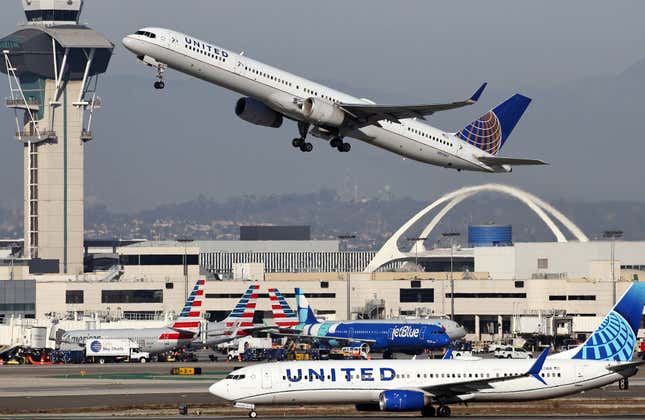
In This Story
Airline stocks are in for some turbulence, according to global investment bank Jefferies (JEF-2.21%).
The firm issued a report today entitled “The Air Comes Out of Airlines” in which it downgraded American (AAL+0.15%) and Delta (DAL-1.62%) stocks from buy to hold. Air Canada and Southwest (LUV+1.96%) have been downgraded from hold to underperform. Air Canada is especially vulnerable to cross-border tariffs and tensions.
Jefferies kept United Airlines (UAL-0.79%) as its lone buy recommendation, based mainly on opportunities beyond 2025. Still, it revised its price target downward by 48%.
The firm blamed the dour outlook for airline stocks on declining consumer and corporate confidence along with fears about tariffs.
“Consumer sentiment continues to disappoint, now at 4-yr lows, and tariffs take effect this week after delays affecting business confidence,” the report says, adding that “GDP-driven businesses like airlines are in for short-term pain.”
The report and negative outlook sent airline stocks tumbling Tuesday.
Jefferies’ cautionary note comes after airlines put out their own warnings with their recent quarterly earnings.
Last month, Delta lowered its outlook, citing reduced confidence among consumers and businesses and economic uncertainty. American Airlines and JetBlue (JBLU+3.23%) followed suit in cutting guidance for 2025.
Southwest, meanwhile, unveiled a range of moves to lift revenue, including charging for many checked bags. It also doubled its cost-cutting goal, and now aims to slash expenses by more than $1 billion by 2027.
—Will Gavin contributed to this article.